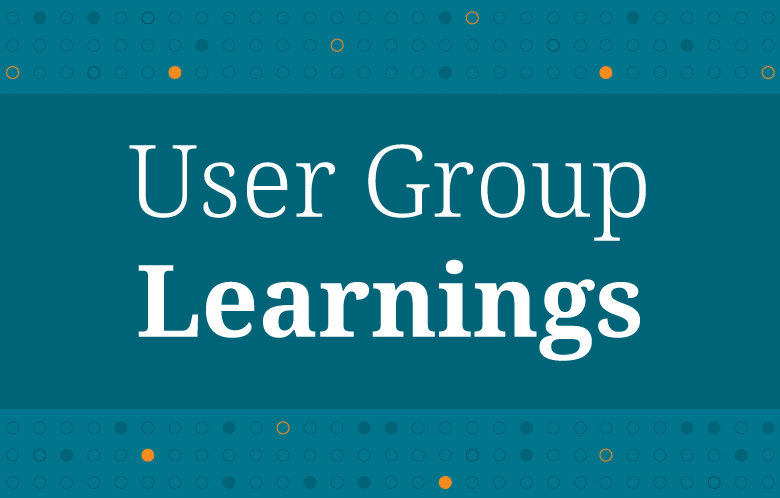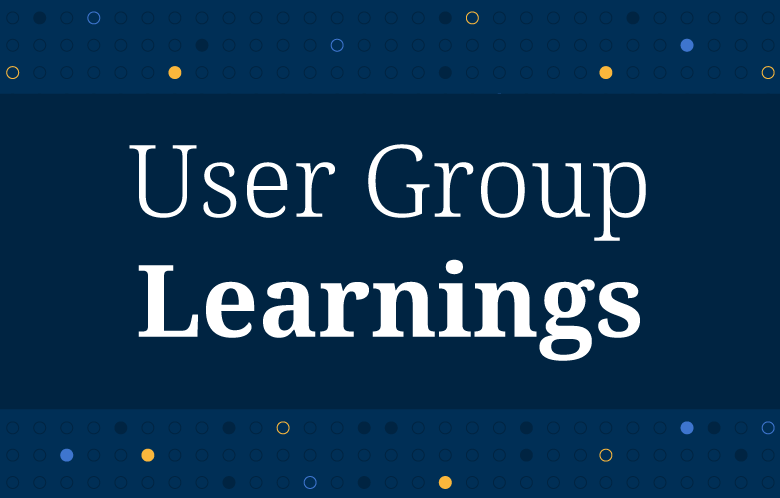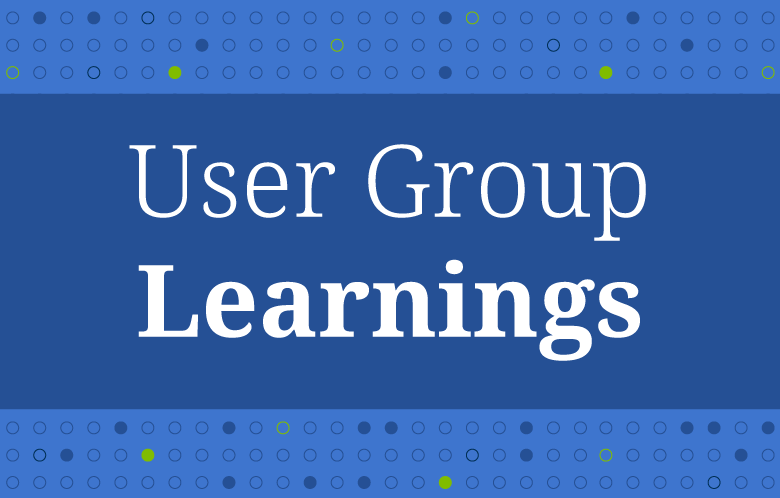What We Learned about Linked Data Innovation at the EBSCO User Group
At EBSCO, we believe collaboration with our customers is essential for success. We can build products and solutions that address each library’s unique requirements by actively listening to their experiences, challenges, and aspirations. The User Group catalyzed meaningful conversations and deepened our understanding of our customer's pain points and aspirations. We understand the immense value of customer input in shaping our roadmaps and driving continuous improvements. In this article, we distill the top themes and recurring requests about linked data innovation that emerged from our discussions at the User Group, enabling us to align our strategies with the most pressing needs of our customers.
Libraries are Harnessing the Power of Big Data
Libraries are treasure troves of valuable but unconnected data, and realizing this potential is gaining traction. Libraries house vast collections of information that, when effectively connected and analyzed, can yield valuable insights and drive informed decision-making. From usage statistics to topical insights for collection development, this big data holds tremendous value. The user group meeting emphasized the importance of implementing data-driven strategies, leveraging analytics tools, and collaborating with other departments on campus to unlock this potential.
BIBFRAME is a Matter of When, Not If
The adoption of BIBFRAME, a framework for bibliographic data, emerged as a critical discussion topic at the User Group meeting. While it may seem like a distant goal for some libraries, the consensus was clear: BIBFRAME is not a question of if but when to start using it. The transition to BIBFRAME will streamline data interchange between libraries, increase interoperability, and support more efficient cataloging processes. The user group emphasized the need for libraries to proactively engage with BIBFRAME implementation plans, allocate necessary resources, and collaborate with industry partners to ensure a smooth transition.
“The consensus was clear: BIBFRAME is not a question of if but when to start using it.”
“The consensus was clear: BIBFRAME is not a question of if but when to start using it.”
Open Data Becomes More Powerful with Open Source
The user group meeting highlighted the benefits libraries could reap by combining linked open data with EBSCO FOLIO. Open data initiatives promote transparency and collaboration, allowing libraries to share their collections, metadata, and resources with the broader community. By integrating open data principles into FOLIO, libraries can drive innovation, foster collaboration, and deliver enhanced user services. In conversations at the User Group, we found people actively exploring the possibilities of leveraging open data and harnessing the flexibility and extensibility of FOLIO's open source code.
Addressing the Need for Linked Data Education
While the potential of linked data is widely recognized, the user group meeting revealed a pressing need for more education and training on this topic. Library staff and students pursuing library degrees require comprehensive knowledge and practical skills in working with linked data. The meeting highlighted the importance of developing educational resources, workshops, and training programs to empower library professionals and equip them with the expertise needed to embrace linked data technologies fully.
“The user group meeting revealed a pressing need for more education and training on [the topic of linked data].”
“The user group meeting revealed a pressing need for more education and training on [the topic of linked data].”
Getting Started: A Practical Guide
One recurring theme from the User Group meeting was the desire for clear guidance on getting started with various linked data initiatives, including using BiblioGraph and getting ready for BIBFRAME in FOLIO. Libraries often find themselves overwhelmed by the vast array of possibilities and unsure of where to begin. We heard a pressing need for comprehensive educational resources, implementation roadmaps, and case studies that provide step-by-step guidance on adopting linked data, implementing data-driven strategies, and embracing open data initiatives. By providing practical advice to each other, libraries can confidently overcome the initial barriers and embark on their transformative journeys.
Moving Beyond Google: Amplifying Library Presence
While libraries increasingly appear in Google search results, the User Group highlighted the importance of capitalizing on this visibility. Libraries should enhance their online presence, make new links to their collections, optimize their websites for search engines, and ensure users can quickly discover and access their resources. This work involves leveraging linked data, creating user-friendly interfaces, developing engaging platforms, and meeting users by creating paths to the library from any website or application.
“Libraries should enhance their online presence…this work involves leveraging linked data.”
“Libraries should enhance their online presence…this work involves leveraging linked data.”
Driving Innovation for Libraries
Empowering data-driven decisions, optimizing workflows, enhancing user experiences, embracing emerging technologies, and fostering collaboration will remain key focal points as we continue to enhance our linked data products and solutions. At EBSCO, we remain committed to putting our customers at the center of our efforts, driving innovation that empowers libraries and strengthens their impact on their communities.



